At least, so far. Not the top ten horror or fantasy or scifi novels, although all three categories are represented herein, but books that I still remember, still think about, still reference days or even decades after reading them. Without further ado:
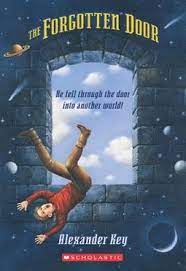
10. The Forgotten Door, by Alexander Key. Jon, a child from another world, falls through a portal and ends up on Earth, where he endures the fear and suspicion of a prejudiced town.
I read this when I was 13 or 14, when a lot of very bad things were happening in my life, and the last scene of this book still haunts me. I wanted to step through that hidden door and live in Jon’s world. It was so much better than this one. Still is. I have not read it since then and, no doubt, if I did so, would find it quaint and simplistic and…juvenile. But it gave me hope and a longing that I still indulge.
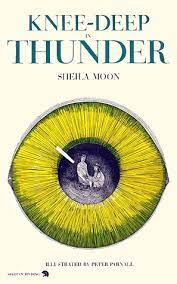
9. Knee Deep in Thunder, by Sheila Moon. Maris and a motley gang of bugs- yes, bugs- go on a quest to save a magical land from an evil force.
Another book I read at 13 or 14 in the midst of all those bad things happening and the last scene of this book- where Jetsam disappears down the beach- has also stayed with me but not out of hope or longing, no. Out of loss. That everything you love will be lost, eventually. Which, of course, is not Moon’s intent or message but is the one I derived. The beauty of books: you can find your own meaning.
8. The Winds of War, by Herman Wouk. A sweeping family saga of WW2.
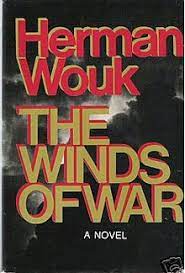
Yes, I know, not one book but two, the second one being War and Remembrance, and a pretty good TV miniseries to boot, and I have yet to find another WW2 story that so well captures the massive shock and upheaval of that conflict. Everything and everyone in this book changes, and not always for the best. The scene at the Auschwitz gas chambers is one of the most chilling and revolting ever written.
7. Vanishing Point, by Michaela Roessner. One night, 90% of the world’s population simply vanishes. Forty years later, the surviving 10% are still trying to cope.
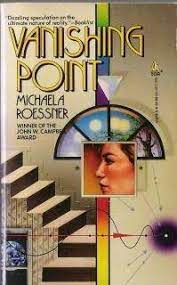
This is a scifi novel that leans post-apocalyptic, so I differentiate it from the next book on the list which is pure scifi and leaves me enough wiggle room to declare this one and the next one as the two best scifi books I ever read. Roessner never explains what happened, and I freakin’ love that. Deal with it and move on.
6. The Sparrow, by Mary Doria Russell. A Jesuit priest makes first contact with a race of aliens located near Alpha Centauri.

This is a mind blowing story about faith and cultures and what happens when two completely incompatible groups meet, without realizing they are incompatible until it is too late. One of the most successful depictions of a completely alien species that I’ve read. And the sequel, Children of God, ain’t no slouch, neither.
5. The Baroque Cycle: Quicksilver, The Confusion, The System of the World, by Neal Stephenson. An epic sweeping gargantuan and overwhelming world striding mess of a story that covers Europe from the time of the English Civil War through the Glorious Revolution.
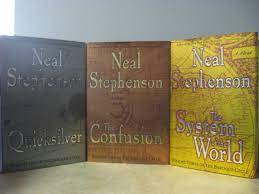
As told by a boatload of characters, from Sir Isaac Newton to Half-Cocked Jack (who gained the appellation through a rather unfortunate accident), this is history made palatable. And gripping. And, yes, I know, trilogy, not novel. But once you start with Quicksilver, you’ll become so immersed in this crazy story that you’ll swear it was just one novel. One really big novel, so pack a lunch.
4. Lonesome Dove, by Larry McMurtry. A couple of aging cattlemen decide to move their ranch from Texas to Montana.
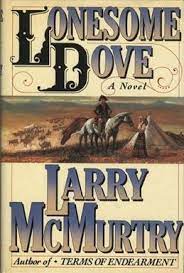
Yes, the miniseries was epic, but doesn’t hold a candle to the novel, which belongs to the Dying West genre: increasingly irrelevant cowboys take a stand for a rapidly fading way of life. This one, though, gilds no lilies, and the casual brutality of the frontier will make you glad you live in modern times.
3. Sometimes a Great Notion. In post-Korean War America, an estranged son returns to his home at the request of his half brother to help the family break a logging strike.
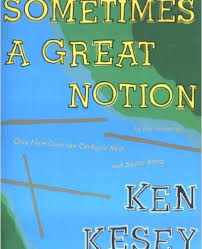
This, and the next entry, are the two Great American novels, at least so far. While everyone knows Ken Kesey from One Flew Over the Cuckoo’s Nest, this one is far superior, a mesmerizing tale of a completely dysfunctional family who is forced to pull together in the face of a town’s hostility. The Stampers are defying a lumber strike by delivering wood to the local mill, earning the enmity of neighbors and union organizers, and each other. Not an easy read because Kesey took the James Joyce approach here and there and you’ll get viewpoint changes sometimes within the same sentence, but worth your time and effort.
2. East of Eden. A retelling of Cain and Abel, with two sets of brothers a generation apart reprising the roles.
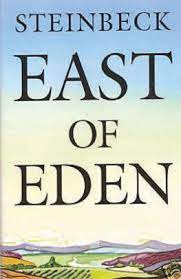
This is post-Civil War America in its broad, mad rush to become itself. A generational saga that begins with probably the most awful father you’ll find outside of a Faulkner novel, the first set of brothers, Charles and Adam, fight that father and each other in an effort to break free and establish themselves. Adam ends up in the Salinas Valley and marries probably the most evil character you’ll find outside of a Stoker novel, leading to the next set of brothers, Caleb and Aron, and their subsequent tragedy. Talk about the three generational curse…
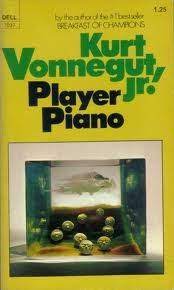
1. Player Piano, by Kurt Vonnegut. An engineer leads a revolt against a dystopian society.
You know Vonnegut was going to creep into one of my lists somewhere sometime because the guy is just unique, in a category by himself, like Jack Vance. Everyone thinks Slaughterhouse-5 is his opus but, no, it’s this one, which is more of a straight up story than his later, delightfully absurd, novels, such as Cat’s Cradle and God Bless You Mr. Rosewater. There is still a lot of delightfully absurd writing in this novel, especially when Vonnegut is describing the noises that machines make. In a dystopia run by corporations, where corporate life is all, the individual can only exist within prescribed corporate rules and approval. Break the rules, you are dismissed, or worse, never promoted, but at least that’s better than being in the Army or the Reclamation and Recovery corps, the only two options for anyone not an engineer or manager. This was written in 1952. Yikes.
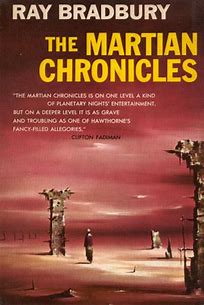
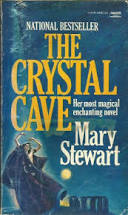
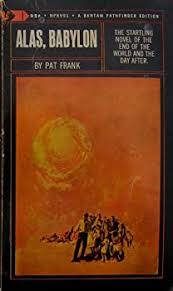
Note that I left out The Martian Chronicles and The Crystal Cave and Alas Babylon. Ten is ten. I guess I need to start another list, say, the Best Ten Books I Ever Read Besides the Other Ten. We’ll see.